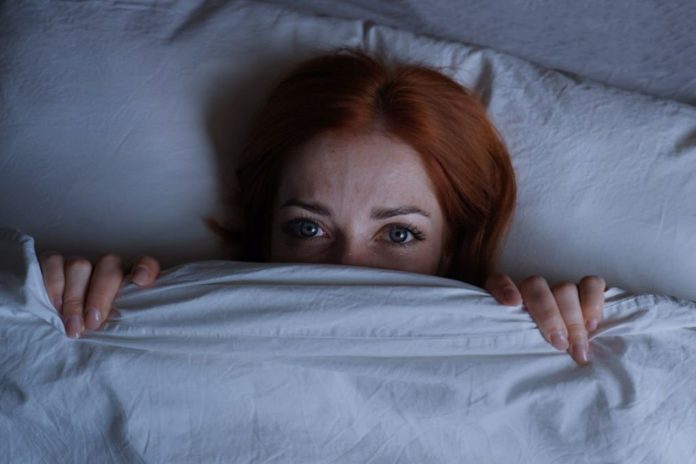Dream-enactment behavior is a phenomenon in which a person physically acts out vivid, unpleasant dreams with vocal noises and sudden, often violent motions of the limbs while sleeping in the rapid eye movement (REM) stage, which is the deepest period of sleep.
Researchers recently found that the number of people with dream-enactment behavior, also called rapid eye movement sleep behavior disorder (RBD), went up by two to four times during the COVID-19 pandemic.
The study’s authors noted that COVID-19’s long-term effects can cause neuropsychiatric symptoms and abnormalities in COVID-19 patients.
Even though muscle paralysis is meant to occur during REM sleep, someone with RBD will not have this paralysis, making it difficult for them to obtain a good night’s sleep and perform the dreams they are having.
“They may punch or flail their arms in the air, make running movements, or even jump out of bed, sometimes resulting in injuries to themselves or their partner,” study author Prof Yaping Liu of the Chinese University of Hong Kong stated.
Officials reached their conclusions after reviewing data from the International COVID-19 Sleep Study (ICOSS), which took place between May and August 2020 during the pandemic. The online survey gathered information from 15 nations around the world and questioned people if they had suffered RBD during the pandemic. The poll was completed by around 26,539 people.
“We found that the prevalence of dream-enactment behavior was two to four times higher than previous studies that have been conducted in the general population during non-pandemic times,” Liu added. “Moreover, in those subjects who reported a Covid-19 diagnosis, it was two or three times higher, compared with subjects without infection.”
Researchers discovered that RBD was more prevalent in the global population during the pandemic, and that it was connected with olfactory impairment, mood, post-traumatic stress disorder, and obstructive sleep apnea symptoms. COVID-19 patients were two to three times more likely to have RBD, or dream enactment behavior (DEB).
Other contributing factors associated with COVID-19 and DEB, such as stress, anxiety, and breathing troubles, according to Adam Zeman, a professor and expert in sleep disorders at the University of Exeter. Furthermore, Liu acknowledged that their findings are only a first look at the link between the pandemic and RBD.
“Dream-enactment behaviors can also occur as a result of other sleep disorders such as sleep apnea, and have also been reported by people with post-traumatic stress disorder, or who are experiencing nightmares,” Liu explained. They may be intermittent and fade away if other problems, such as nightmares, PTSD, stress, and negative emotions are improved.”
The findings of the study were reported in the Journal of Sleep Research.
Image Credit: Getty
You were reading: New Research Finds A Strange Behavior Change In COVID Patients
